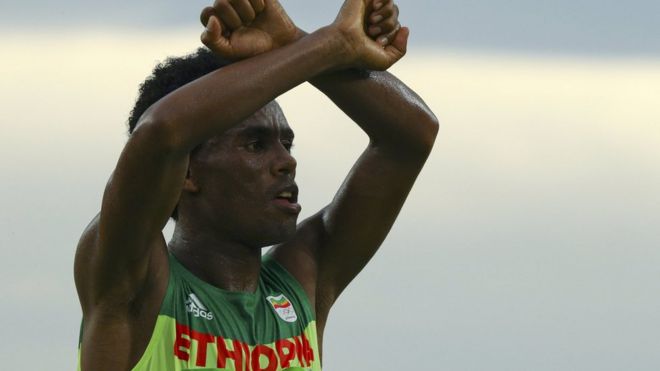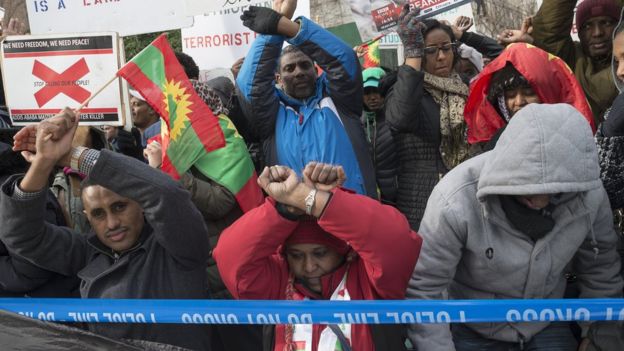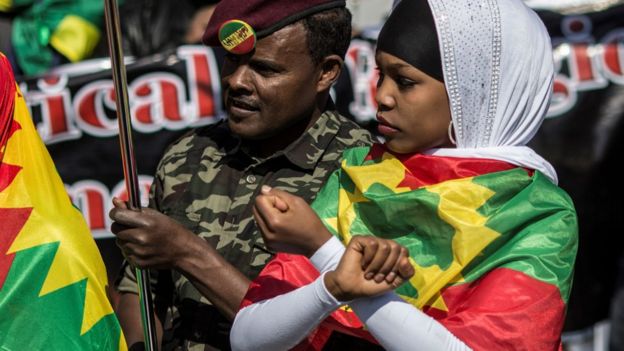Ethiopia 'hero' runner gets asylum donations after Oromo protest sign
- 2 hours ago
- Africa
 EPA
EPAA crowd-funding campaign has raised more than $40,000 (£30,000) to help Ethiopia's Olympic marathon silver medallist Feyisa Lilesa seek asylum.
He crossed his hands above his head as he finished the race - a gesture made by Ethiopia's Oromo people who have suffered brutal police crackdowns.
He says he may be killed if he goes home but Ethiopia's government says he will be welcomed as a hero.
However, state media is not showing photos of him crossing the line.
There has been a wave of protests in Ethiopia in recent months over a series of frustrations, including attempts by the governments to reallocate land in the Oromo and Amhara regions.
US-based Human Rights Watch says security forces have killed more than 400 Oromo protesters, a figure the government disputes.
Rule 50 of the Olympic charter bans political displays or protests and the IOC say they are gathering information about the case.
More on Ethiopia's unrest:
 AFP
AFPThe BBC's Emmanuel Igunza in neighbouring Kenya says Mr Feyisa is being described by some as the bravest Olympian at the Rio Games for his anti-government protest, but he now faces the prospect of a life in exile.
Within hours of his protest, a crowd-funding page was set up, saying the runner had displayed "extraordinary heroism" and that he had become an "international symbol" for the Oromo protests.
The California-based organiser had initially set a target of $10,000 but it was exceeded within an hour.
"We raised the bar to $25,000 and that too was exceeded in a few hours,"Solomon Ungashe wrote on Facebook.
 GETTY IMAGES
GETTY IMAGES AFP
AFPAfter the race, Mr Feyisa explained why, as an Oromo, he supported the protests about land and resources.
"The Ethiopian government is killing my people so I stand with all protests anywhere as Oromo is my tribe. My relatives are in prison and if they talk about democratic rights they are killed," he said.
A legal team hired by Ethiopians in US is headed to Rio to try and help Mr Feyisa, who has a wife and two children in Ethiopia, with a request to seek asylum in the US.
But Information Minister Getachew Reda told the BBC the government had no reason to arrest him and it respected his political opinion.
He also said none of Mr Feyisa's relatives had been jailed over the Oromo protests.
Ethiopian state-owned television station EBC Channel 3 covered the race live, including the finish, but did not repeat the clip in subsequent bulletins - focussing instead on the winner Kenya's Eliud Kipchoge.




